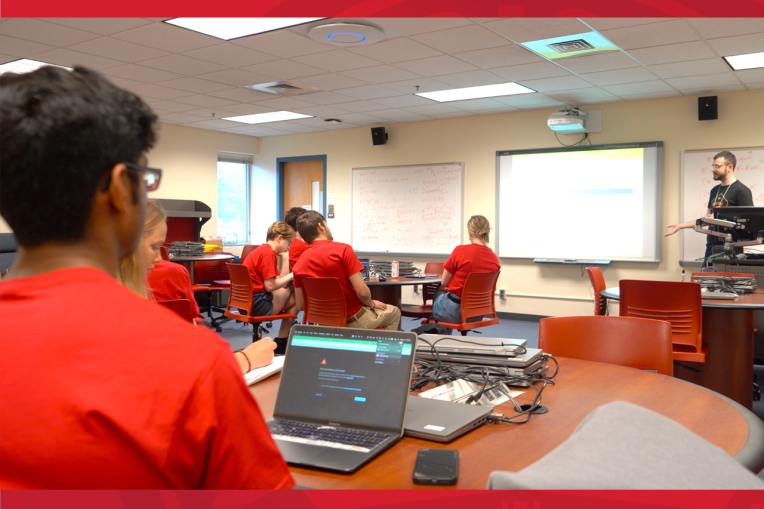The Cross-Institutional Undergraduate Research Experience (CURE) Workshop, hosted by the Intercollegiate Biomathematics Alliance (IBA), June 5-10, at Illinois State University, is a summer research program designed to prepare undergraduate students for graduate-level research while advancing professional academic development for their futures.
Biomathematics, defined by Illinois State University’s Professor of Mathematics and IBA Executive Director Dr. Olcay Akman, is “a science in the interface of biology, mathematics, statistics, computer science, ecology, and related fields.” Akman said with the use of biomathematics, workshop participants model life problems, make predictions, and develop strategies for real-life scenarios like diseases, global warming, cancer, and the coronavirus.
At the CURE workshop, students select a research topic, work in small groups, and collaborate with faculty research mentors and industry professionals to experience the process of conducting research in mathematical biology.
Since the workshop was developed in 2014, Akman said it has gained national recognition from students. Students and faculty from a wide range of universities in the U.S. traveled to Illinois State University to participate in the weeklong workshop. In preparation for the in-person sessions held on campus, participants met for the Pre-Workshop Online Boot Camp, May 15-June 2.
“It’s an academic year crammed into a week,” Akman said. “Students start their day with a formal lecture on a topic that’s related to the core of the workshop. Then, faculty members from various institutions teach them hands-on formats of various tools used in research, such as computer programming, modeling, and data analysis techniques.”
During the workshop, students research their topics in groups led by Illinois State graduate students. Akman said toward the second half of the week, faculty research mentors propose research projects to students and break out into sessions to discuss their projects of interest.
“Once the workshop ends, students go back to their home institutions, but they continue to stay in touch with their faculty research mentors to keep working on the projects with them and report to us weekly on their progress reports,” he said.
Akman said after the summer workshop concludes, the students will later attend the annual Biomathematics, Ecology, Education, and Research (BEER) Symposium, held since 2007, where they will present their research results and submit their papers to a journal that the University sponsors.

